Media Critic on Why It’s Only Getting Worse
Jeff Cohen joins Truthdig to talk about life in the big media trenches, why news coverage is only getting worse, and how horse race politics and the corporatization of information are killing American democracy. Cohen was the communications director for the 2004 Dennis Kucinich campaign, founder of Fairness and Accuracy In Reporting, and author most recently of "Cable News Confidential" (excerpted here).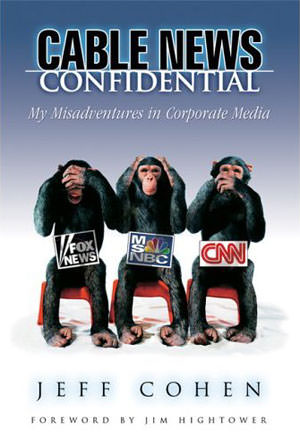
Jeff Cohen joins Truthdig to talk about life in the big media trenches, why news coverage is only getting worse, and how horse race politics and the corporatization of information are killing American democracy. Cohen was the communications director for the 2004 Dennis Kucinich campaign, founder of Fairness and Accuracy In Reporting, and author most recently of “Cable News Confidential” (excerpted here).
Listen:
(running time: 32:34 / 29.8 MB)
Selected excerpts from “Cable News Confidential: My Misadventures in Corporate Media,” by Jeff Cohen:
I know TV news better than I ever wanted to. I started appearing as a guest on CNN in the 1980s when it was the only news channel on cable. But CNN attracted competitors, as others saw how easy and relatively cheap it could be to spatter “news” across 24 hours. Over the years, I’ve been a pundit on all three such channels: I got my feet wet at CNN, waded halfway in at Fox News, where I appeared each week for five years — and then became completely submerged at MSNBC, where I was a producer and pundit until terminated for political reasons three weeks before the Iraq war.
What I found inside cable news was a drunken exuberance for sex, crime and celebrity stories, matched by a grim timidity and fear of offending the powers-that-be — especially if the powers-that-be are conservatives. The biggest fear is of doing anything that could get you, or your network, accused of being liberal.
I also found in cable news a passion for following the media pack (sometimes resembling a lynch mob) — whether in pursuit of a sex scandal or war. And a fear of finding yourself alone, asking questions no one else is asking.
Cable news is in the business of entertainment, using traditional Hollywood genres to attract viewers: lurid crime drama (O.J., JonBenet, Laci Peterson), sex farce (Clinton/Lewinsky), suspense thriller (Beltway sniper), war (with special theme music and graphics).
Once upon a time, TV news put journalists on camera. Today, cable news has on-air “talent” — who are “cast,” not just hired. A Walter Cronkite would have big trouble getting a job today in TV news. But an actor? No problem. CNN a few years ago cast a former actress from “NYPD Blue” as one of its “Headline News” anchors. At Fox News, where lip gloss and blond hair go further than a background in journalism, I could find no proof to the charge that executives reviewed audition tapes of potential female anchors with the sound turned off.
Schooled in the protocols of cable news, the Bush administration brilliantly exploited the medium’s worship of live events. When I was at MSNBC in 2002/2003, I witnessed producers nearly orgasm at word that the White House would soon be serving up a photo-op or briefing. Upon hearing of these events — called “pressers” — all else is put on hold to assure that the second the administration event starts, MSNBC and the other news channels are ready to air it live.
Team Bush might schedule a White House press secretary’s briefing (“the president stands tough against terrorism”) … followed by a Pentagon briefing (“war on terror is on track”) … followed by an afternoon speech from President Bush in front of a patriotic flag backdrop and cheering handpicked crowd … followed by a briefing on the latest terrorism arrest or scare from the Justice Department or Homeland Security. Through its ability to dictate the rhythms of the news day, the White House’s often singular view of reality would air at length in near monologue fashion.
As I sat at my MSNBC desk watching Bush or a top associate carry on, I knew painfully well that my network would not be following the administration event with a critical view, no matter how dubious or manipulative were the official claims. To do so — to practice actual journalism — might prompt the dreaded charge of “liberal bias.”
Dominance of the media agenda bred contempt at the White House for facts and journalism. In a conversation with author Ron Suskind during this period, an anonymous senior Bush adviser dismissed journalists and others of “the reality-based community” — explaining, “We’re an empire now, and when we act, we create our own reality. And while you’re studying that reality … we’ll act again, creating other new realities.”
And actual journalism might undermine the “show.” Stars might refuse to appear on your channel. Big “gets” from the White House would be found only on rival programs.
When Phil Donahue toughly interviewed big-name guests, MSNBC execs were petrified that the VIPs would be offended and not make return engagements. They’d complain that Phil was “badgering” the guests. “Access is everything in Washington,” Phil later told a reporter. “If you’re the executive producer at one of the big news shows and you piss off Karl Rove, you’re not going to get Condi or Rummy or any of those guests who would legitimize your show as a serious, important program.”
On MSNBC’s “Donahue,” we once booked foreign policy critic Ramsey Clark as an in-studio guest. The former U.S. attorney general denounced Bush’s Iraq policy. Soon after, I was told it wasn’t supposed to happen; MSNBC bosses had Clark on some sort of blacklist.
Not all “weapons experts” got it wrong before the Iraq invasion. In the last months of 2002, Scott Ritter told any audience or journalist who would hear him that Iraqi WMD represented no weapons threat to our country. “Send in the inspectors,” urged Ritter, “don’t send in the Marines.”
It’s telling that in the run-up to war, no American TV network hired any on-air analysts from among the experts who questioned White House WMD claims. None would hire Ritter.
Inside MSNBC in 2002, Ritter was the target of a smear that he was receiving covert funds from Saddam Hussein’s government. The slur, obviously aimed at reducing his appearances, insinuated that Ritter’s views were not genuine and heartfelt, but procured. The “covert funding” charge surfaced repeatedly at MSNBC, especially when we sought to book Ritter as a guest on “Donahue.”
The irony is that MSNBC at the time regularly featured another commentator who would soon be receiving covert government funds. The covert funder was the Bush administration, specifically its Education Department — which, beginning in 2003, paid pundit Armstrong Williams nearly a quarter-million dollars to promote Bush’s No Child Left Behind Act. The Bush team broke its promise to fully fund the Act but kept faith with the pundit. When I repeatedly debated Williams at MSNBC, I had no idea he’d become part of a No Pundit Left Behind program.
TV’s big broadcast networks were no more open to critical voices than cable news, as illustrated by FAIR’s study of the nightly newscasts on CBS, NBC, ABC and PBS in the week before and the week after Colin Powell’s bellicose U.N. Security Council presentation on Iraqi WMD. Powell’s February 2003 speech was built on obvious exaggerations and falsehoods. But nightly news viewers would have been largely clueless. Of the 393 people interviewed about Iraq during those crucial weeks, only three were antiwar advocates. That’s a fraction of 1 percent — a nondebate, at a time when polls showed half the country opposing a rush to war.
For more information, visit Cohen’s website or the homepage for “Cable News Confidential.”
Your support matters…Independent journalism is under threat and overshadowed by heavily funded mainstream media.
You can help level the playing field. Become a member.
Your tax-deductible contribution keeps us digging beneath the headlines to give you thought-provoking, investigative reporting and analysis that unearths what's really happening- without compromise.
Give today to support our courageous, independent journalists.

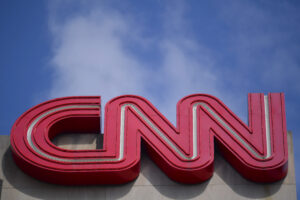
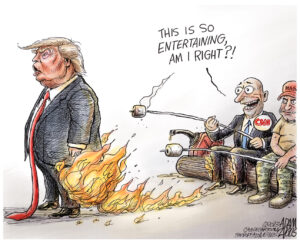
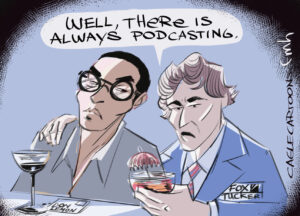
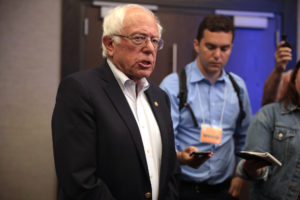
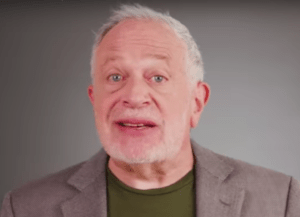
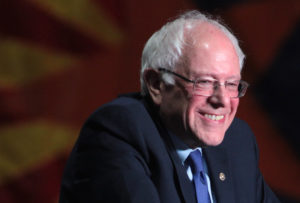


You need to be a supporter to comment.
There are currently no responses to this article.
Be the first to respond.